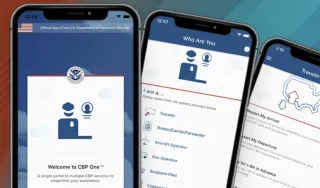About Us
How CIDBL Can Help
CIDBL (Center for Immigration Defense and Border Law) a boutique private law firm, is uniquely committed to providing representation to detained individuals in "legal deserts" where representation is often difficult to obtain.
How is this possible?
Since the COVID-19 outbreak and the pandemic, video court appearances and video legal visits have become more common. This means, individuals in detention have larger access to attorneys who can provide legal help through video visits and appear in immigration courts despite having their offices far away. CIDBL uses this technology to serve those who find themselves in distant immigration detention locations. As a private law firm, CIDBL is committed to providing low cost, flat fee, services, which may include the cost of translation services and traveling to the detention center for in-person Merits Hearings. We want your case to have the best possible representation to ensure the best possible outcome.
100+
Detention Centers
About 106 detention centers exist in the U.S.A.
Remote
Detention centers are often in remote locations, including small towns hundreds of miles from larger cities.
An Average of 40,000+
noncitizens are detained.
Barriers
to Representation
Alone, it is difficult to navigate the complicated legal process.
How Detention Works
The United States maintains a system of detention facilities designed to hold individuals awaiting deportation and those suspected of visa violations or a variety of other immigration violations. U.S. Immigration and Customs Enforcement ("ICE") maintains these immigration detention centers, which are located throughout the United States. Today, about 106 detention centers exist with about 37,000 people detained. ICE provides general information about immigration detention centers here.
Many of these detention centers are in remote locations, including small towns hundreds of miles from a larger city, where legal representation is extremely sparse. What's more, several barriers exist to finding representation. The Immigration Court Practice Manual, Chapter 2.1 explains:
(a) ... Under the regulations, parties appearing before the immigration court may represent themselves or be represented by practitioners.
See 8 C.F.R. §§ 1001.1(ff), 1292.1.
...
A respondent may be represented by a practitioner of their choosing, at no cost to the government. As in most civil or administrative proceedings, the government does not provide legal counsel. The immigration court provides respondents with a list of pro bono legal service providers who may be willing to represent respondents at no cost.
Due to the many barriers individuals in immigration detention face, the largest majority must represent themselves and navigate the complicated legal process.
Helpful Resources:

Recent Articles
Strategic Litigation: Suing for Damages in International Court
Individuals who seek asylee status in the United States may have other avenues to complain. In particular, international bodies, such as the Human Rights Council of the United Nations takes complaints... ...more
Asylum
March 30, 2025•1 min read

CBP One App and Asylum
Former President Biden gave asylum seekers only one avenue to obtain relief: the CBP One App. Under Trump, this avenue is gone. ...more
Asylum
February 05, 2025•3 min read

What Are Legal Deserts?
People seeking asylum, withholding of removal, or relief under the Convention Against Torture may come to the United States, only to find themselves in an immigration detention center. At that time, t... ...more
Immigration Law
January 09, 2025•2 min read


Use of this website does not create an Attorney-Client Relationship. This website includes general information about legal issues and developments in the law. Such materials are for informational purposes only and may not reflect the most current legal developments.
To serve our clients needs best, we are a virtual office serving throughout the United States.
Copyright © 2025 The Center for Immigration Defense and Border Law
